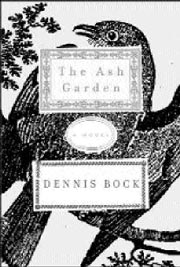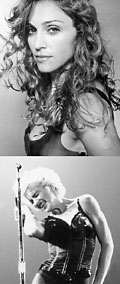THE ASH GARDEN by Dennis Bock (Knopf, $23)
SUBTLE DEPICTIONS of World War II are becoming a rarity. Increasingly over the past decade, films like Pearl Harbor, TV series like Band of Brothers, and a steady spew of nostalgic commercial novels show us types such as the wholesome Midwestern patriot and creepy German sociopath sparring in between images of atrocity—showers spraying gas, guards shoveling corpses, armies reducing Europe’s gleaming centers to sooty skeletons. Refreshingly, Toronto author Dennis Bock opts out on spectacle in his debut novel, The Ash Garden, focusing less on the dazzling war and more on three characters it has impacted emotionally. The book still centers around an atrocity— the bombing of Hiroshima on Aug. 6, 1945—but it’s one that inspires awe as much as horror.
Deftly blending fiction and history while skipping forward and backward through its central characters’ lives, Bock’s novel tells how scientist Anton B� one of the masterminds behind the atomic bomb, flees Germany in the late ’30s for North America (“‘I did not leave fascism as much as leave a place that could not accommodate my work,'” he confesses). There, he watches his first test bombs ignite the New Mexico sky and weds Sophie, a half-Jewish Austrian refugee he encounters at an internment camp in Canada. After spending the postwar years in New York—where Anton teaches and Sophie stoically endures the terminal skin disease lupus—the pair settles in a quaint suburb of Toronto. Peaceful retirement gives way to jarring life shifts, however, when the couple receives a visitor, Emiko Amai, a documentary filmmaker who lost half her face and her entire immediate family one unfortunate morning in Hiroshima.
We’d assume Anton, a man partially responsible for the loss of over 70,000 lives, would be crippled by guilt. But Bock gives his character a moral layering that’s eerily realistic. The narrator says of Anton’s lectures, ” . . . it was easy enough to see, listening to one of his talks, that he was a man with a particular and unforgiving point, which was that the nightmare, terrible as it had been, would always be overshadowed by the majesty of the dream.” We, too, receive a glimpse of the sublime in a nuclear explosion, as Bock describes a test bombing in Los Alamos: “When the flash spread suddenly, beautifully, over the desert floor, turning the dark basin of sand and rock into a bowl of yellow light, the cloud began to shape in the distance, and the perfect silence, yet unbroken in the bunker, hung in the air.”
Though Anton denies his criminality, he admits that he, like the rest of the post- nuclear world, has been forever denied naﶥt鮠When Emiko questions his surprisingly clear conscience, Anton informs her, “‘With the bomb, ideas of right and wrong ceased to exist. To be a principled human being doesn’t mean you pay lip service to right and wrong. That’s too easy. Children think like that.'”
EQUALLY COMPLEX is Anton and Sophie’s relationship, an ache-filled yet nourishing partnership between two people connected by more than love. As the decades pass, the spouses unintentionally desecrate their marriage. While her husband’s at war, Sophie cheats with an Italian refugee, whom she recognizes too late as “her only chance at happiness.” The highly logical, work-obsessed Anton, on the other hand, never truly accepts his wife’s less practical way of life, viewing Sophie’s passion for clipping animal shapes out of shrubbery ” . . . with a degree of pity and certainly bemusement and the slightest shade of impatience. What he could not understand was how she failed to see this, as he did so clearly, as the stopgap of a bored housewife against loneliness.” Yet the offspringless pair remains bound together by Sophie’s fear of losing any more loved ones, Anton’s devotion to his ailing wife, and the ghosts of war they both know so well. The narrator sums up their relationship: “It was deeper than a lover’s commitment, though that, of course, had been there. It was deeper than family or any other shared history could have provided. It was what they had lost that linked them.”
Bock’s a masterly animator of the walking wounded, and by this melancholic novel’s end, we feel appropriately drained after surveying an immense, continent-crossing scab caused by World War II. But remarkably, Bock also has the ability to spark hope in humanity’s bleakest moments. While speaking with Sophie about the existence of God, Anton claims it doesn’t matter what they believe anyway. “‘You can never know what someone thought about something until he’s dead . . . ‘” Anton says, because death is “‘when he no longer has the luxury of changing his mind.'” From this statement comes The Ash Garden‘s most piercing truth: that anyone—even the most vile war criminal—can evolve, and a thoroughly scarred girl can one day befriend the man who destroyed her city.








